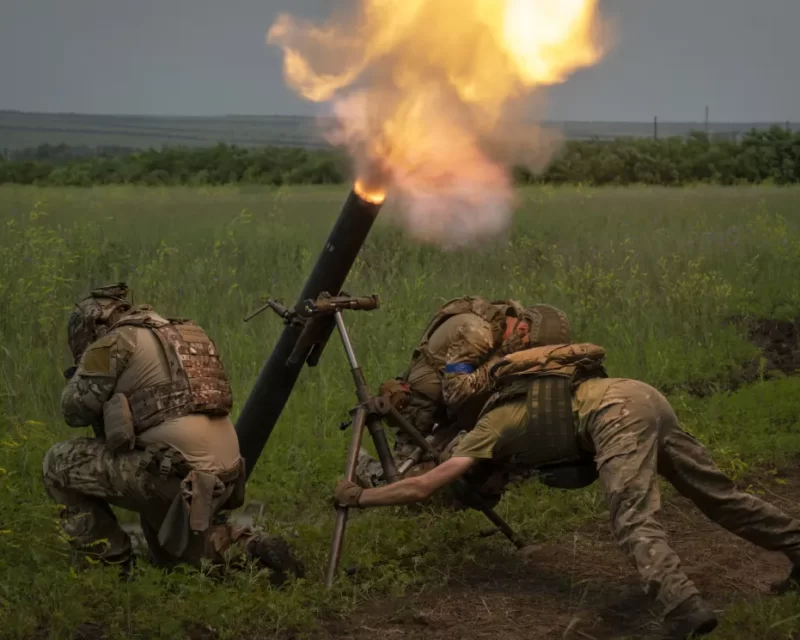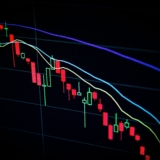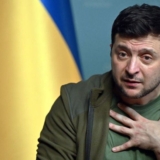Ukraine’s counteroffensive failing? Kyiv and its supporters worry about losing control of the narrative
While Ukrainian troops engage in a fierce struggle against well-fortified Russian forces on Ukrainian soil, the Ukrainian government in Kyiv is conducting a parallel battle on the international stage, seeking to influence global perceptions of their ongoing counteroffensive.
Ukrainian officials and their supporters express confidence in their ultimate victory on the battlefield. However, they caution against the propagation of unrealistic expectations in media coverage and commentaries, as they fear that such narratives could mislead the world into believing that Ukraine cannot and will not win.
Yuriy Sak, an adviser to Ukraine’s defense minister, emphasized, “The two things that we keep asking our allies for are weapons and patience.”
Despite receiving new weaponry from Western sources, including the United States, such as tanks, long-range missiles, and artillery ammunition, Ukraine still faces challenges. Notably, Ukraine lacks air power and has encountered formidable resistance from Russian forces that have established minefields, anti-tank barriers, and defensive trenches along the front lines.
Since the launch of the counteroffensive in June, Ukraine has regained approximately 241 square kilometers (less than 100 square miles) of territory in the country’s south and east, according to Hanna Maliar, Ukraine’s deputy minister of defense.
Ukrainian officials in Kyiv assert that the Ukrainian military is prioritizing the preservation of its troops and equipment while searching for weaknesses in Russia’s defenses. In the meantime, Ukraine has deployed additional troops in the south and launched limited-scale attacks to assess Russian positions.
Some U.S. officials privately express disappointment with what they see as a reluctance by Ukraine to deploy its most well-equipped and trained units effectively. They have raised concerns that Ukraine has not fully utilized the training and resources provided. “There is a frustration that they have not used more of the combat power that they have,” said one U.S. official.
However, the Pentagon maintains that Ukraine has significant combat capability and intends to employ it strategically to defend its territory. Pentagon press secretary Brig. Gen. Pat Ryder stated, “We are confident that they have significant combat capability available to them, and that they’re going to employ that at a time and place of their choosing to defend their country and take back sovereign territory.”
Ukrainian officials reject accusations of moving too slowly and emphasize the need to be strategic in their actions given the significant disparity in resources compared to Russian forces.
Leonid Polyakov, a former Ukrainian vice defense minister, cited instances in which hasty assaults during the counteroffensive resulted in heavy casualties. He explained that Ukrainian forces have had to adapt their approach due to limited air support and the absence of air superiority.
Ukrainian President Volodymyr Zelenskyy acknowledged delays in the counteroffensive, attributing them to the integration of Western military equipment and training. The additional time afforded to Russia allowed them to bolster their defenses.
The lack of air power poses a considerable challenge for Ukraine. U.S. military doctrine emphasizes coordinated air and ground attacks, a capability Ukraine currently lacks. Ukrainian officials have expressed the need for international assistance in this regard.
While the U.S. has plans to provide F-16 fighter jets to Ukraine and European governments are organizing training for Ukrainian pilots, these measures will take time to materialize. U.S. officials stress that fighter jets alone may not be sufficient to shift the balance.
The political stakes are high for Ukraine, which relies on external military support to sustain its war effort. Ukrainian officials assert that they are making progress in regaining territory lost to Russia, but the front lines have remained largely static for nine months. Both sides have failed to achieve significant advances, prompting experts to suggest that a decisive military outcome may not be attainable.
In light of this, some experts argue that it is time to prepare for an inconclusive outcome and explore diplomatic solutions. Samuel Charap, a senior political scientist at the Rand Corp think tank, suggests that the U.S. should consider options for an eventual diplomatic settlement, recognizing the likelihood of a protracted conflict without a clear victor.
The ongoing Ukrainian counteroffensive continues to unfold against the backdrop of international scrutiny, challenging narratives and expectations both on the battlefield and in the realm of global perception.





